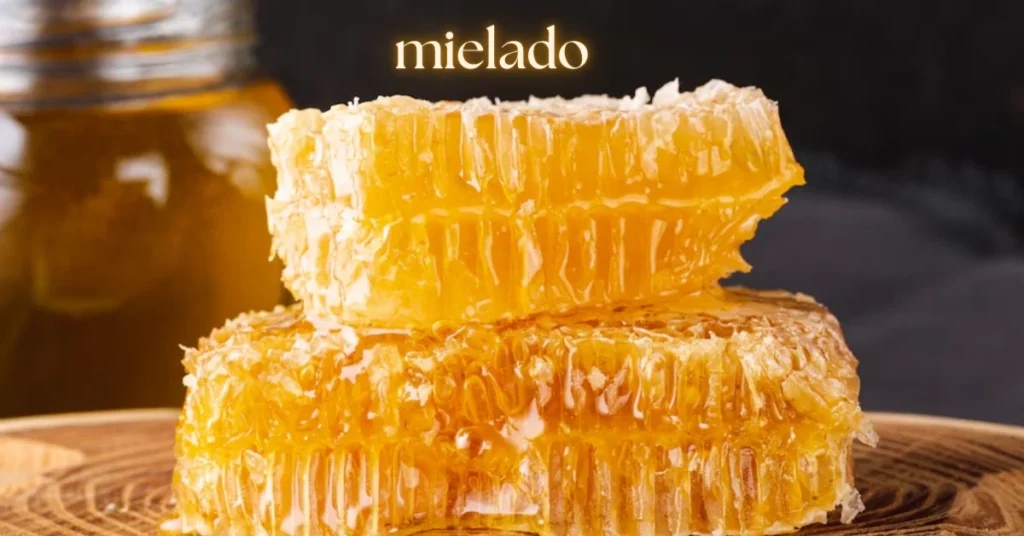Introduction to Mielado
Welcome to the sweet world of mielado, where nature’s nectar takes center stage. Have you ever tasted honey that dances on your palate with a rich, complex flavor profile? If not, you’re in for a treat! Mielado—honeydew honey—is an exquisite delight sourced from the sap secreted by trees and plants. Unlike traditional floral honeys, this unique variation offers an earthy sweetness that’s sure to intrigue both casual consumers and dedicated foodies alike.
Join us as we dive deeper into the fascinating journey of mielado. From its creation to its numerous health benefits and culinary possibilities, there’s so much more to discover about this golden treasure. So grab a spoon or drizzle it over your favorite dish as we explore all things mielado!
What is Honeydew Honey and How is it Made?
Honeydew honey, often referred to as mielado, is a distinct type of honey that comes from the secretions of aphids and other sap-sucking insects. These tiny creatures feed on plant sap, which they then excrete as a sugary substance. Bees collect this sweet liquid instead of nectar.
The process starts when bees gather the honeydew from trees or plants affected by these insects. Once back at their hive, they transform it through repeated regurgitation and evaporation. This unique method gives mielado its characteristic flavor profile—rich and complex with hints of caramelized sugar.
Unlike traditional floral honeys, honeydew honey has a darker hue and a thicker consistency. Its unique source contributes to its robust taste and high mineral content, making it stand out in the world of natural sweeteners.
Health Benefits of Mielado
Mielado, or honeydew honey, is more than just a sweet treat. It boasts a unique composition that offers numerous health benefits.
Rich in antioxidants, mielado helps combat oxidative stress in the body. These compounds can aid in reducing inflammation and supporting overall wellness.
This natural sweetener also contains essential minerals like calcium and magnesium. These nutrients contribute to bone health and muscle function.
Additionally, its lower glycemic index makes it a suitable option for those monitoring their sugar intake. Mielado provides energy without causing rapid spikes in blood sugar levels.
Some studies suggest that this type of honey has antimicrobial properties as well. This could potentially support your immune system by fighting off harmful bacteria.
Incorporating mielado into your diet can be an enjoyable way to boost your health while indulging your taste buds.
ALSO READ: Ancient Grain in a Healthy Cereal NYT: Your Path to Wellness
Culinary Uses of Honeydew Honey
Honeydew honey, or mielado, is a delightful addition to various culinary creations. Its unique flavor profile pairs beautifully with savory dishes. Consider drizzling it over roasted vegetables for a sweet contrast that enhances their natural flavors.
Baking enthusiasts can experiment by substituting traditional sugars with mielado in recipes like cookies and cakes. The distinct taste adds depth while keeping treats moist and delicious.
In beverages, honeydew honey shines as a natural sweetener. Stir it into herbal teas or use it to create refreshing cocktails. The subtle hints of its floral notes elevate any drink.
For breakfast lovers, spread mielado on toast or pancakes alongside fresh fruit. It transforms the ordinary into something extraordinary without overpowering other flavors.
Its versatility makes mielede an essential ingredient for chefs and home cooks alike who seek innovative ways to incorporate sweetness into their meals.
Where to Find and Purchase Mielado?
Finding mielado can be an exciting adventure. This unique honey is not always available in your local grocery store, so exploring specialty shops is key. Look for health food stores or farmers’ markets that prioritize locally sourced products.
Online marketplaces are another great option. Many artisans sell their mielado directly through their websites or platforms like Etsy and Amazon. You’ll often find a variety of flavors and sizes to suit your needs.
When searching for quality miele, consider checking product reviews and sourcing information. Transparency from sellers about where the honey comes from enhances its authenticity.
Don’t forget to explore local beekeepers as well! They may offer fresh mielado straight from the hive, ensuring you’re getting a truly unique product while supporting sustainable practices within your community.
ALSO READ: Smoothie CCL: Your Ultimate Health Boost
Comparing Mielado to Other Types of Honey
Mielado stands apart from traditional floral honey due to its unique origin. While most honeys derive their sweetness from nectar, mielado comes from the excretions of aphids feeding on tree sap. This gives it a distinct flavor profile that can be richer and more complex.
In contrast to wildflower or clover honey, which tend to have lighter, floral notes, mielado boasts deeper caramel undertones. It often has a thicker consistency as well.
Another difference lies in its nutritional properties. Mielado tends to contain higher levels of antioxidants and minerals because it’s produced in specific regions where certain plants thrive.
When comparing sweetness levels, some might find mielado less sweet than conventional types. Its earthiness offers a palate experience that appeals to adventurous eaters seeking something beyond standard offerings. Each type of honey brings its own charm; exploring these differences adds depth to your culinary journey.
The Future of Mielado: Sustainable Practices and Preservation Efforts
As the demand for mielado’s grows, preserving its unique qualities becomes vital. Sustainable beekeeping practices are emerging to ensure honeydew honey can thrive without harming ecosystems.
Farmers are adopting methods that protect bee populations while promoting biodiversity. These practices include planting diverse floral sources and avoiding harmful pesticides.
Additionally, organizations are working to educate consumers about the importance of supporting local beekeepers. By choosing sustainably sourced mielado’s, people contribute to a healthier environment.
Research is also ongoing into how climate change affects honeydew production. Understanding these impacts will help producers adapt their techniques and maintain quality.
Efforts in preservation extend beyond farming as well. Communities are engaging in initiatives to raise awareness about the delicate balance between nature and agriculture, ensuring future generations enjoy this delightful sweet treat.
ALSO READ: Tomahawk Steak: Next Level Flavor
Conclusion: Discovering the Unique Flavor and Versatility of Mielado
Mielado offers a captivating journey into the world of honeydew honey. Its unique flavor profile sets it apart from traditional floral honeys, making it a delightful addition to any pantry. With its rich, complex taste and dark amber color, mielado can elevate dishes in unexpected ways.
Beyond its culinary applications, this special honey brings numerous health benefits. It’s packed with antioxidants and has antimicrobial properties that support overall well-being.
As you explore different uses for mielado—from drizzling over pancakes to incorporating it in marinades—you’ll appreciate how versatile it truly is. Whether you’re a food enthusiast or simply someone who enjoys sweet treats, this distinctive honey is worth seeking out.
Finding high-quality mielado might require some exploration at local markets or specialty shops, but the effort will be rewarded with new flavors and experiences.
With increasing awareness about sustainable practices in beekeeping and environmental conservation efforts surrounding bee populations, the future of mielado looks promising. Supporting these initiatives not only preserves this delicious product but also contributes to a healthier ecosystem.
Embrace the sweetness of mielado as you discover its many facets—each drop tells a story rooted in nature’s artistry. Let your palate experience something extraordinary; delve into the enchanting realm of honeydew honey today!
ALSO READ: Unveiling Calandrando: A Culinary Adventure
FAQs
What is “mielado”?
Mielado, also known as honeydew honey, is a unique type of honey made from the sugary secretions of sap-sucking insects like aphids, rather than floral nectar.
How is mielado’s produced?
Mielado’s is created when bees collect the honeydew excreted by insects feeding on plant sap. They then transform it in their hive through regurgitation and evaporation.
What are the health benefits of mielado’s?
Mielado’s is rich in antioxidants and essential minerals, supports immune function, has a lower glycemic index, and may reduce inflammation.
How can I use mielado‘s in cooking?
Mielado’s adds depth to both sweet and savory dishes; try it drizzled on roasted vegetables, as a sugar substitute in baking, or stirred into beverages.
Where can I buy mielado’s?
You can find mielado at local farmers’ markets, specialty grocery stores, and online retailers. Supporting local beekeepers is a great way to get high-quality mielado.







